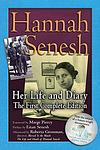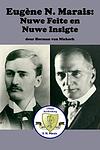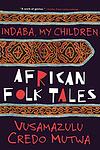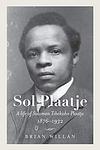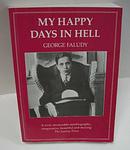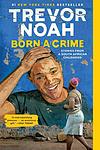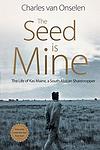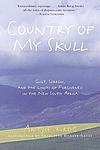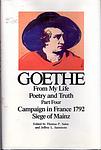The Greatest Hungarian, South African "Nonfiction" Books Since 1900
Click to learn how this list is calculated.
This list represents a comprehensive and trusted collection of the greatest books. Developed through a specialized algorithm, it brings together 300 'best of' book lists to form a definitive guide to the world's most acclaimed books. For those interested in how these books are chosen, additional details can be found on the rankings page.
Genres
Countries
Date Range
Reading Statistics
Click the button below to see how many of these books you've read!
Download
If you're interested in downloading this list as a CSV file for use in a spreadsheet application, you can easily do so by clicking the button below. Please note that to ensure a manageable file size and faster download, the CSV will include details for only the first 500 books.
Download-
1. Long Walk To Freedom by Nelson Mandela
"Long Walk to Freedom" is a powerful autobiography that chronicles the extraordinary life of Nelson Mandela. From his humble beginnings in a rural village to becoming the first black president of South Africa, Mandela's journey is one of resilience, determination, and unwavering commitment to justice and equality. Through his personal experiences, he provides a vivid account of the struggle against apartheid, his 27 years of imprisonment, and the eventual triumph of democracy. This book serves as an inspiring testament to Mandela's unwavering spirit and his lifelong fight for freedom and human rights.
-
2. Down Second Avenue by Es'kia Mphahlele
"Down Second Avenue" is a semi-autobiographical account of a black man's life under apartheid in South Africa. The narrative chronicles the protagonist's journey from childhood to adulthood, detailing his experiences with poverty, discrimination, and the struggle for education. Despite the harsh realities of life under apartheid, the protagonist's resilience and determination shine through, offering a poignant and powerful critique of the socio-political realities of the time.
-
3. Kaffir Boy by Mark Mathabane
This autobiography tells the story of a young boy growing up in apartheid-era South Africa. Despite enduring extreme poverty, brutal police raids, and constant racial discrimination, the protagonist manages to escape his harsh reality through education and tennis. His determination and resilience eventually lead him to receive a scholarship to an American university, providing him a chance to escape the oppressive system of apartheid.
-
4. Hannah Senesh by Hannah Senesh
This book is a collection of the diaries, letters, and poems of a young Jewish woman who emigrated from Hungary to Palestine in the 1930s, driven by her Zionist beliefs. She joined the Haganah and later volunteered for a daring military operation to parachute into Nazi-occupied Europe during World War II, with the aim of aiding Allied forces and rescuing Hungarian Jews from the Holocaust. Her writings reflect her courage, literary talent, and the depth of her commitment to her cause. Tragically captured, tortured, and eventually executed by the Nazis, she became an enduring symbol of bravery and sacrifice in the face of tyranny.
-
5. Die Siel Van Die Mier by Eugene Marais
"Die Siel Van Die Mier" by Eugene Marais is a profound exploration of the life and behavior of ants, delving into their intricate social structure and the complex workings of their colonies. Marais's scientific observations are interwoven with philosophical musings, as he contemplates the parallels between ant society and human society, ultimately offering a thought-provoking reflection on the nature of existence and the interconnectedness of all living beings.
-
6. Indaba, My Children by Vusamazulu Credo Mutwa
"Indaba, My Children" is a captivating and enlightening collection of African folklore, myths, and legends, passed down through generations. Through vivid storytelling, the book explores the rich cultural heritage of Africa, delving into topics such as creation stories, ancestral spirits, and the power of dreams. With a blend of wisdom, spirituality, and historical insights, the author invites readers to embark on a journey of discovery, offering a deeper understanding of African traditions and the interconnectedness of all living beings.
-
7. Native Life In South Africa by Sol Plaatje
"Native Life In South Africa" is a firsthand account of the experiences and struggles of the native African population in South Africa during the early 20th century. The author, Sol Plaatje, provides a powerful and insightful narrative that sheds light on the social, political, and economic injustices faced by the indigenous people under the oppressive system of colonialism. Through his vivid descriptions and personal anecdotes, Plaatje highlights the resilience and determination of the native population in their fight for equality and justice.
-
8. A Journey Round My Skull by Frigyes Karinthy
"A Journey Round My Skull" is a deeply personal narrative that takes the reader through the author's own experiences with a brain tumor and the subsequent neurosurgery. Written with a blend of humor, introspection, and medical detail, the book explores the author's changing perceptions and emotions as he confronts his mortality and the intricacies of his own mind. It is a pioneering work in the genre of medical memoirs, offering a unique window into the psychological and physical journey of a patient in the early 20th century, as well as the evolving field of neurosurgery.
-
9. Bezzeg Az én Időmben by Klára Fehér
"Bezzeg Az én Időmben" is a reflective work that delves into the generational differences and societal changes in Hungary, offering a nostalgic look at the past through the lens of personal anecdotes and cultural observations. The book contrasts contemporary life with the experiences of previous generations, exploring themes of family, education, and social norms. It serves as a commentary on the evolution of Hungarian society, inviting readers to consider the implications of progress and the value of tradition in a rapidly changing world.
-
10. The Confessions Of A Haut Bourgeois by Sándor Márai
"The Confessions of a Haut Bourgeois" is a memoir that delves into the life and reflections of a man born into the Hungarian upper middle class at the turn of the 20th century. The narrative explores the author's formative years, education, and experiences that shaped his worldview, set against the backdrop of a fading Austro-Hungarian Empire and the tumultuous changes sweeping through Europe. It is a poignant examination of the cultural and social mores of the time, as well as a personal reckoning with the loss of the author's own privileged world and the search for identity in a society undergoing profound transformation.
-
11. My Happy Days In Hell by György Faludy
The book is an autobiographical account of a Hungarian poet's life during the mid-20th century, chronicling his experiences from his carefree youth through the rise of fascism and his subsequent imprisonment in a brutal labor camp. It is a tale of intellectual passion, political upheaval, and the resilience of the human spirit in the face of totalitarianism. The narrative captures the author's journey through a Europe ravaged by war and political strife, his encounters with notable literary figures, and his unyielding commitment to his beliefs and to poetry, even as he endures the hardships and absurdities of a communist regime.
-
12. I Have Lived a Thousand Years by Livia Bitton-Jackson
This memoir tells the harrowing story of a 13-year-old Jewish girl's survival during the Holocaust. The narrative follows her life from her quiet existence in Hungary through the horrors of Auschwitz and other concentration camps, and finally to her liberation and the struggle to rebuild her life in the aftermath of such trauma. The memoir is a powerful testament to human resilience and the will to survive against all odds.
-
13. Born A Crime by Trevor Noah
"Born A Crime" is a captivating memoir that chronicles the life of Trevor Noah, a South African comedian and television host. Set during the apartheid era, the book explores Noah's experiences as a mixed-race child growing up in a society where interracial relationships were illegal. With humor and insight, Noah recounts his struggles with identity, poverty, and racism, while also highlighting the resilience and strength of his mother who played a pivotal role in his life. This thought-provoking memoir offers a compelling and personal perspective on race, family, and the power of laughter in the face of adversity.
-
14. The Seed Is Mine by Charles Van Onselen
"The Seed Is Mine" is a historical non-fiction book that explores the life of a black South African named Klaas, who lived through the tumultuous years of apartheid. Through extensive research and interviews, the author delves into Klaas' personal experiences, struggles, and aspirations, shedding light on the complex dynamics of race, class, and power during this period. The book offers a poignant and intimate portrayal of one man's fight for dignity and justice amidst a system designed to suppress and oppress.
-
15. Country Of My Skull by Antjie Krog
"Country Of My Skull" is a powerful and deeply personal account of the author's experiences as a journalist covering the Truth and Reconciliation Commission in post-apartheid South Africa. Through her vivid and introspective narrative, the author explores the complexities of forgiveness, justice, and the collective healing process of a nation grappling with its painful past. This thought-provoking book offers a unique perspective on the complexities of reconciliation and the enduring impact of trauma on individuals and societies.
-
16. Boyhood: Scenes from provincial life by J M Coetzee
"Boyhood: Scenes from Provincial Life" is a semi-autobiographical novel that explores the author's childhood in South Africa during the apartheid era. The narrative delves into the complexities of family dynamics, racial tension, and the struggle of a young boy trying to understand his place in a divided society. The protagonist grapples with his identity, torn between his Afrikaner heritage and his English schooling, while also navigating the trials of adolescence. The book offers a poignant and often painful reflection on the formative years of a boy growing up in a fraught and turbulent time.
Reading Statistics
Click the button below to see how many of these books you've read!
Download
If you're interested in downloading this list as a CSV file for use in a spreadsheet application, you can easily do so by clicking the button below. Please note that to ensure a manageable file size and faster download, the CSV will include details for only the first 500 books.
Download


